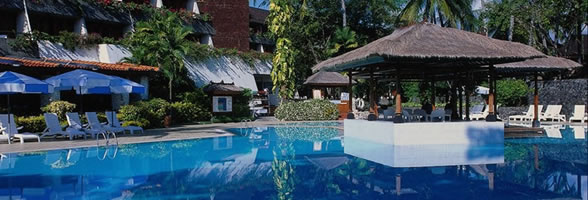
relax,rejuvenate and enjoy your Trip to Kenya
Family Safari in Kenya
- COUNTRY:
- Kenya
- LOCATION:
- Rift Valley
- DEPARTURES:
-
2011: 18 Dec
2012: 10 Feb, 13 Jul, 27 Jul, 18 Aug - PRICE:
- From £1199 - £1299 (11 days) and from £1484 - £1899 per child
- MORE INFO:
- Price includes: hotels (1 night), camping (7 nights), 8 breakfasts, 7 lunches and 7 evening meals. Minimum age 5 years.
Family safari in Kenya
Highlights
- Explore the Rift Valley Lakes
- Camp in the Masai Mara Reserve
- Experience the great African outdoors
Day-by-day itinerary
| Day 1: | Fly to Nairobi. |
| Day 2: | Nairobi. Visit Elephant Orphanage and Giraffe Centre. |
| Day 3/4: | Amboseli NP. Game drives; visit a Masai Village. |
| Day 5: | Lake Naivasha; game viewing. |
| Day 6: | Lake Nakuru NP; see flamingos. |
| Day 7-9: | Masai Mara. Drive to the Masai Mara; game drives, visit a local school & meet a Masai elder. |
| Day 10: | Drive to Nairobi. Fly to Home. |
| Day 11: | Arrive Home. |
Family specialist
This tour operator specialises in family adventure travel overseas, offering a range of different destinations, activities and styles to suit your family – whatever their age or interests. We provide escorted adventure and activity holidays as tours or tailor-made itineraries for families travelling with children. With over thirty years experience of operating adventure and activity holidays, we are passionate about our work, and constantly looking for ways of innovating.How this holiday makes a difference
Basecamp Masai Mara
Your time in the Masai Mara will be based at Basecamp Masai Mara – recipient of a number of Responsible Tourism awards including the Gold rated eco camp status in Mara for sustainably protecting the environment and improving the living standards of the Local Masai Community.
- More than 75% of the staff working at Basecamp are the Local Masais.
- You will be given opportunity to join Basecamp climate warriors by planting trees. This will require only a small contribution as the seedlings are natured by local Masai youths as a way of also raising some funds.
- The waste water from your shower and sink is recycled to nurture our “carbon capture” tree areas.
- You can “adopt” a cheetah through Basecamp’s cheetah conservation project.
We have more than 100 Masai Women working on improving Masai Crafts like bead and Leather works through the support of Basecamp providing them with expertise, venue and overseas marketing. The Women keep 75% of the sales revenue and the remaining 25% is used to purchase raw materials for sustainable production of more crafts. You can visit a shop at our fair Trade handcraft centre at the camp and purchase traditional beads and leather work in support of the women and take home beautiful souvenirs and gifts.
- You will rest quietly and with a good conscience knowing that the camp is run on solar energy.
- We have a policy of ensuring that our business, including your travel is carbon neutral.
- Your visit is important; just by staying with us you support nature conservation, community development and Masai culture.
Elephant Orphanage and Giraffe Centre
On this trip you will visit the Daphne Sheldrick Wildlife Trust. This is an orphanage for elephant and rhino where you can see, touch and feed baby elephants that, for one reason or another, have lost their parents. The centre is run in memory of Daphne Sheldrick, one of the wardens of Tsavo National Park, the biggest of the Kenyan national parks, who battled against poaching, one of the greatest threats to African wildlife. There is also the opportunity to visit the African Fund for Endangered Wildlife's Giraffe Centre. Here you can see the rare Rothschild's giraffe that the centre has reared from a dwindling herd that originated from the northwest of the country, and subsequently reintroduced into the wild with great success. You can get fantastic close-up shots of these elegant animals from the raised wooden walkways – the giraffe stick their heads right through the fence so you can feed them.
Amboseli National Park and Masai Village Visit
Amboseli National Park has at its heart a dried-up lake bed which in the dry season produces mirages in the shimmering heat. Despite its desert-like appearance, swamps and springs fed by underground rivers from the melting snows of Mount Kilimanjaro provide permanent watering places even in times of drought. Along with elephant, there is plenty of game to be seen such as lion, leopard, rhino, cheetah, buffalo and masses of plains' game and birdlife. The park's popularity along with the Masai cattle means that the delicate but precious ecosystem is slowly being eroded, and park rules are that vehicles must stick to roads and tracks. There will be an opportunity to visit an authentic Masai village and school (if not closed for the school holidays), to see firsthand how local communities around the camps are supported by responsible tourism – approximately US$20 per person. Skilled teachers and enthusiastic Masai children are inspirational but there is still lots of room for further support.







